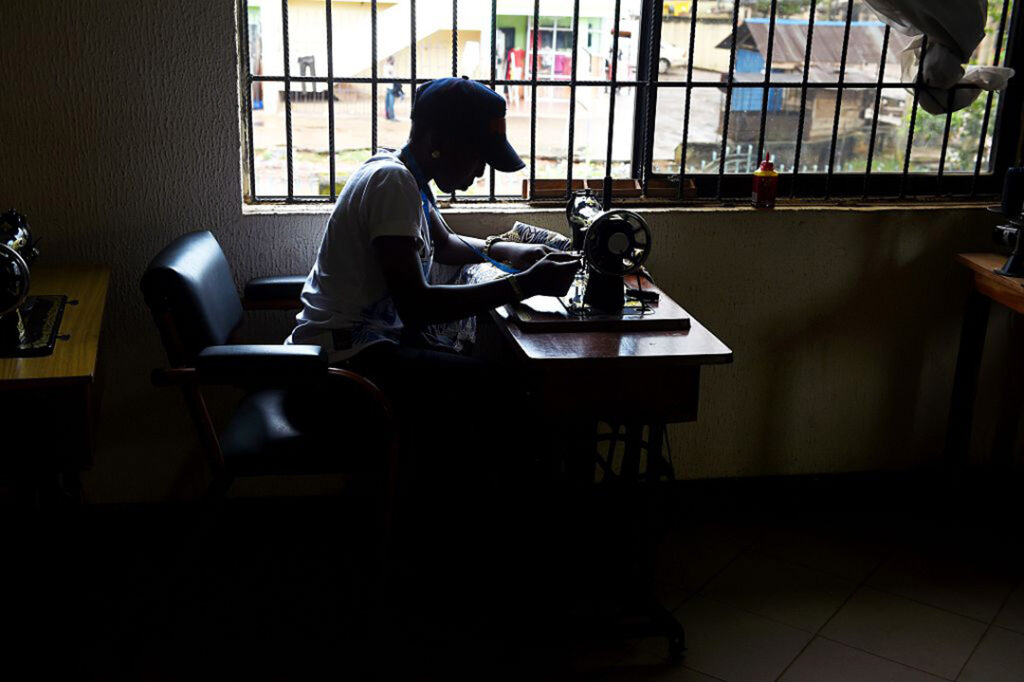ADF STAFF
Feeling pressure to make money, Dayo Sadiq decided to migrate from her home in Benin City, Nigeria, to Mali. She had been promised a job making up to $360 a month to clean houses.
Like many other Nigerian women from Edo State, Dayo (who used a pseudonym) was deceived by a fake job offer from an acquaintance she met at the market.
When she arrived at the outskirts of the Malian capital, Bamako, she was taken to a sex workers house guarded by armed men.
“Men would come in to choose girls as a sex partner or they would come to pick you up for hard labor,” she recounted for the United Nations’ International Organization for Migration (IOM) website. “If you refused, they would be hitting you with heavy sticks.
“They were treating us like animals. It was like hell.”
Human trafficking in Nigeria has many faces.
Women and girls are taken by force or fraud and sold into sexual and domestic slavery. Boys are taken for forced and bonded labor. Children are born into slavery in baby factories. People have their organs harvested.
Some Nigerians follow promises of economic or education opportunities before realizing they have been scammed.
They can end up in other parts of Africa or across the world, often after perilous journeys.
Fatima Waziri-Azi, director-general of Nigeria’s National Agency for the Prohibition of Trafficking in Persons (NAPTIP), says human trafficking has become epidemic in the country, with people being sent against their will to other parts of Nigeria and the world.
“Internal trafficking is happening before our eyes,” Waziri-Azi said in a June 23 meeting with NAPTIP partners in Benin City. “Domestic servitude is a crisis in Nigeria; forced labor too.
“Human trafficking is, therefore, a national crisis. Every state is affected.”
She said human trafficking is a $150 billion global criminal enterprise and is the second-biggest transnational organized crime behind drug trafficking.
Poverty is the top factor making women and girls susceptible to sex trafficking. Other conditions that create vulnerability include displacement, unemployment, homelessness, isolation and cultural or religious practices.
“At NAPTIP, we carry out our work using a five-prong approach using prevention, protection, prosecution, policy and partnership,” Waziri-Azi told reporters on May 12.
Benin City, in the coastal state of Edo, has become the epicenter of human trafficking in Nigeria.
Nduka Nwanwenne, who leads the Benin zone and is one of nine NAPTIP commanders, said in May that agency efforts had led to more than 500 human trafficking convictions since the federal government established it in 2004.
In that time there have been nearly 9,900 cases reported, with more than 8,000 suspected traffickers arrested.
As of May 2022, the agency has rescued, sheltered and rehabilitated 17,753 human trafficking victims — 13,026 females, 4,727 males — 8,935 of whom were children.
Part of Waziri-Azi’s mission is to educate the public to be vigilant, as modern slavery lurks in every corner of Nigerian society and has spread rapidly to the internet and social media.
“Gone are the days when we think human trafficking is offline. It’s now online,” she said. “So we have an increase in fake jobs advertorials and fake scholarships. These are the modern trends human traffickers use in luring their victims.”
Dayo’s story was far from unique.
“In Mali, no fewer than 20,000 Nigerian women and girls are trapped, living in shanties in the mining area where they are sexually exploited,” Waziri-Azi said.
Dayo was able to escape Mali with the help of the IOM.
In January 2022, she returned to her family in Benin City a far less trusting person.
“Right now, I don’t believe that someone can come up to me and convince me to go to Italy and make NGN 200,000 [about $480] per month,” she said. “I know the secret — there is no job. It’s lies.”

